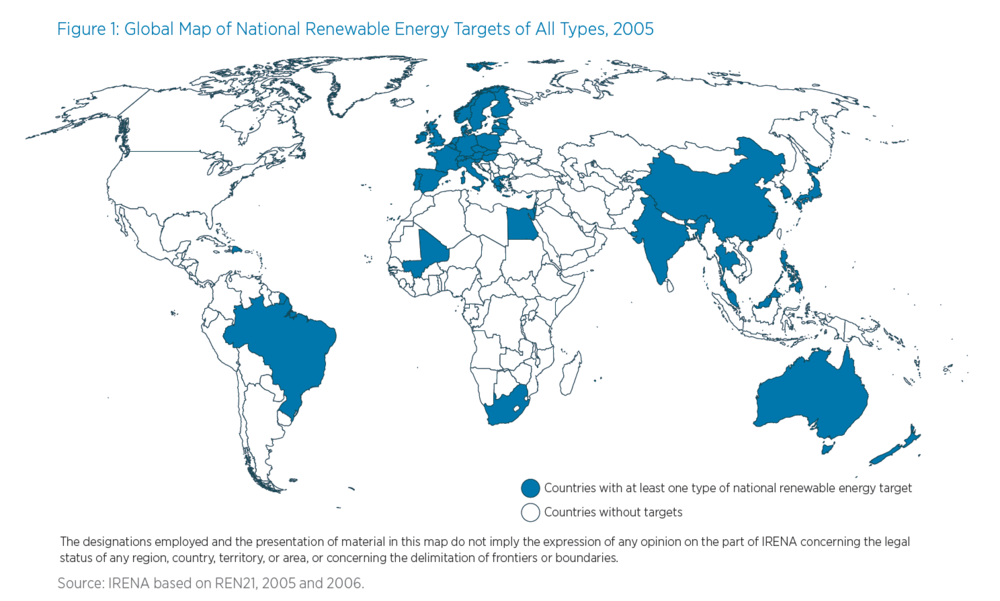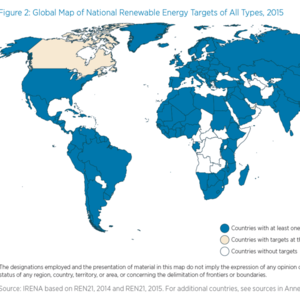Renewable energy targets quadrupled globally since 2005



June 10, 2015
BY The International Renewable Energy Agency
Renewable energy targets are now a defining feature of the global energy landscape, according to a new report by the International Renewable Energy Agency. Renewable Energy Target Setting, launched on the side lines of IRENA’s ninth Council meeting, finds that 164 countries have adopted at least one type of renewable energy target, up from just 43 countries in 2005. Two more countries, Canada and the United Arab Emirates, have set renewable energy targets at the sub-national level.
“Renewable energy targets have emerged as a popular mechanism to set national and regional economies on the path towards a more secure and sustainable energy future,” said IRENA Director-General Adnan Z. Amin. “They provide an important signal to the industry and can help to align stakeholders by creating a clearer, common vision for the development of the energy sector.”
Advertisement
Developing and emerging economies are leading the adoption of targets, accounting for 131 of the 164 countries with renewable energy targets. The majority of countries focus on the electricity sector—150 countries have renewable electricity targets—but commitments in other sectors are also on the rise. The number of countries setting targets for the heating/cooling sector increased from two countries in 2005 to 47 today. Similarly, renewable transport targets have more than doubled from 27 countries in 2005 to 59 today.
“Governments are increasingly adopting renewable energy targets to meet multiple objectives including energy security, environmental sustainability and socio-economic benefits,” said Mr. Amin. “The rapid growth of targets is just one more signal of the world’s ongoing shift towards renewable energy and away from fossil fuels.”
While underscoring the importance of renewable energy targets, the report recognizes that they are not sufficient in and of themselves. In order to be seen as credible by investors and society and to provide a reliable trajectory for the future evolution of the energy mix, they need to be accompanied by a clear strategy and backed by specific policies and measures.
Advertisement
Related Stories
The European Commission on July 18 announced its investigation into biodiesel imports from China is now complete and did not confirm the existence of fraud. The commission will take action, however, to address some systemic weaknesses it identified.
Kintetsu World Express Inc. has signed an additional agreement with Hong Kong, China-based Cathay Pacific Airways for the use of sustainable aviation fuel (SAF). The agreement expands a three-year partnership between the two companies.
On July 18, U.S. EPA announced a reduction in force (RIF) as the agency continues its comprehensive restructuring efforts. With organizational improvements, EPA is delivering $748.8 million in savings.
Broco Energy on July 17 announced a new partnership with the Massachusetts Port Authority (Massport) to deliver and transition Massport's fuel tanks to renewable diesel across its various facilities.
Shell Aviation, Accenture, and Amex GBT on July 10 announced Avelia is in the process of evolving to an industry solution with independent data hosting and a multi-supplier model helping users access the GHG benefits of SAF.
Upcoming Events










